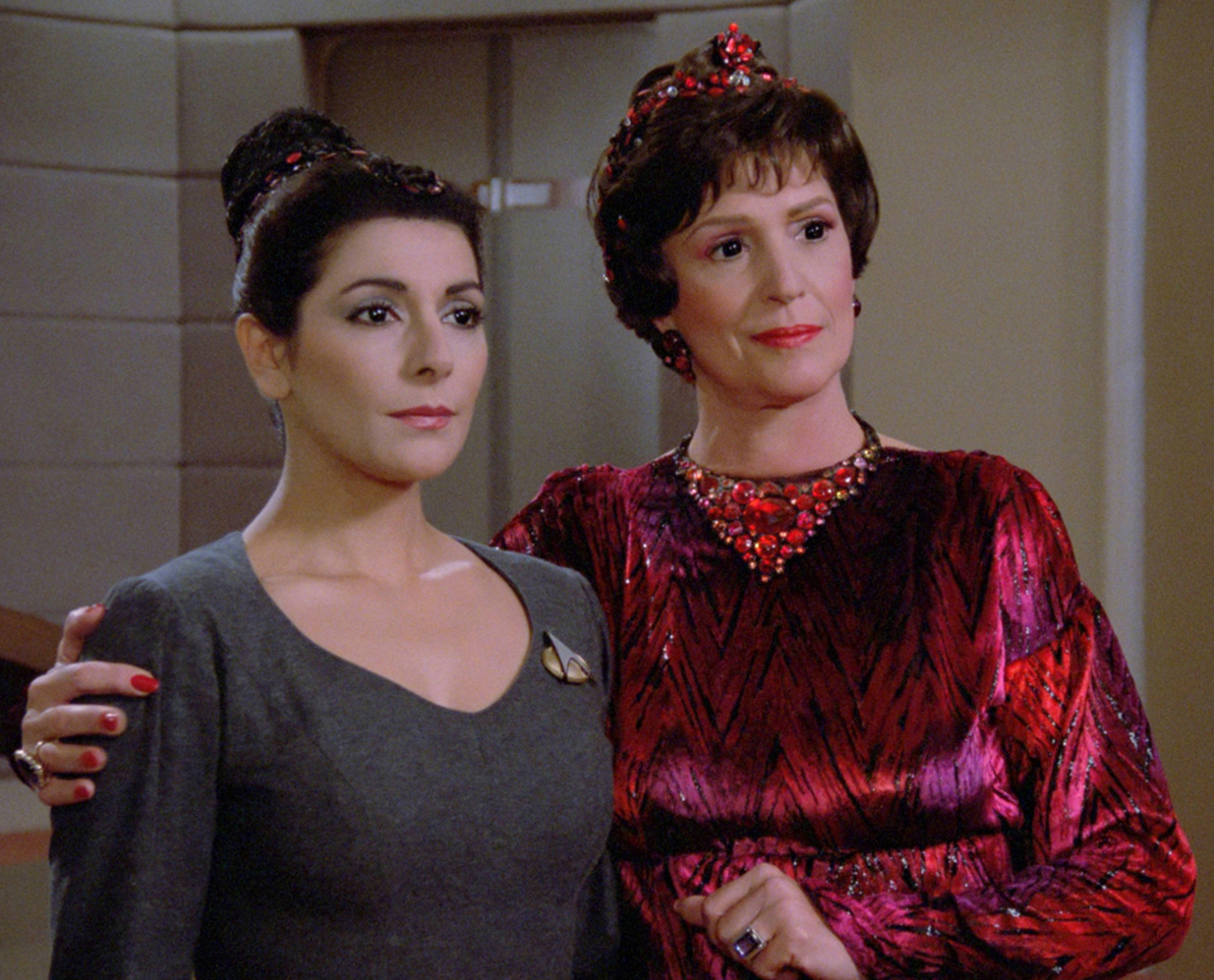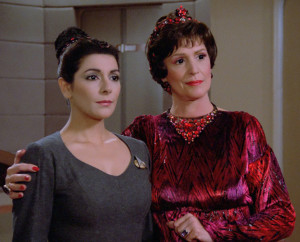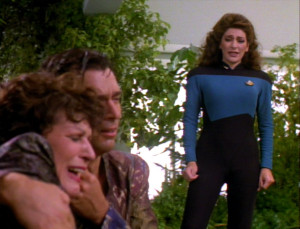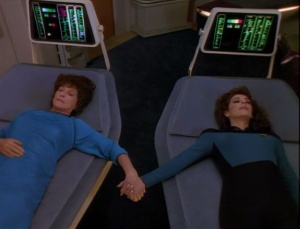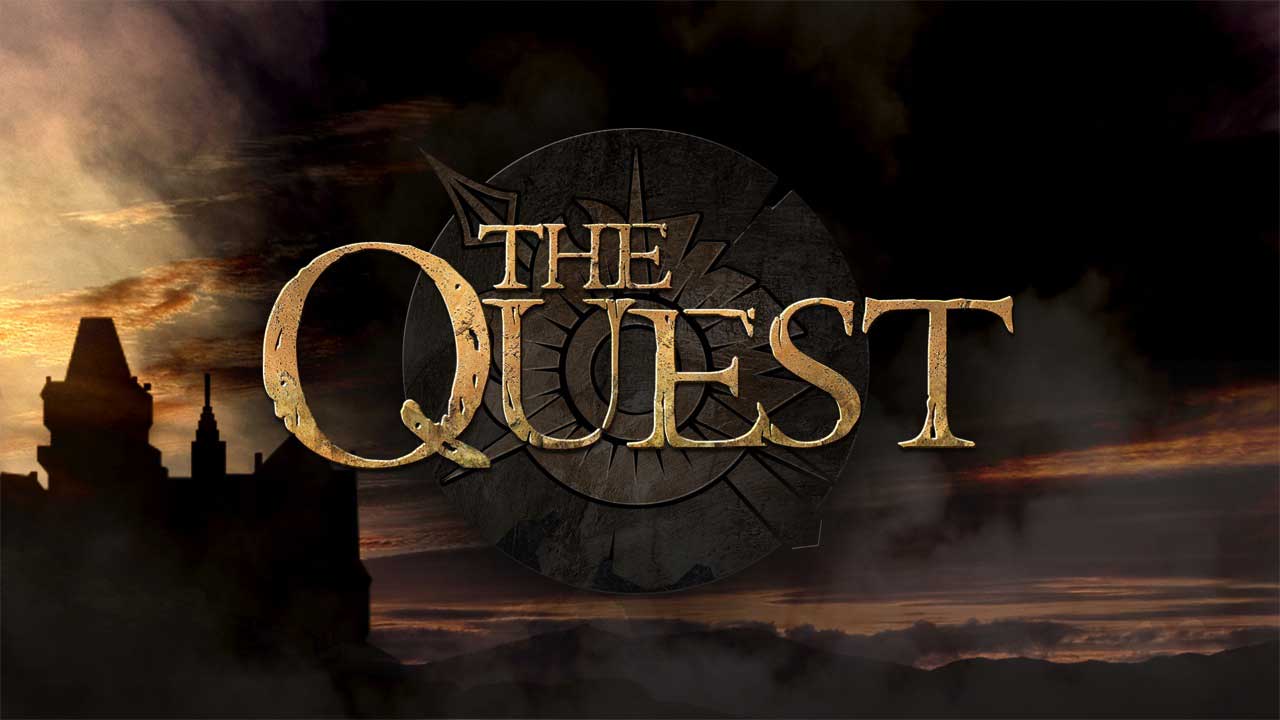There are many important, intricate, complex relationships in “Star Trek: The Next Generation,” but one is often overlooked. Counselor Deanna Troi (Marina Sirtis) and her mother Lwaxana Troi (Majel Barrett Roddenberry) display many common patterns in a mother-daugther relationship. Because of this relationship, I was able to relate to Deanna, one of my favorite characters on the show. [Spoilers ahead.]
Deanna is problematic, as far as characters go – she’s often the victim in various scenarios. During the series, she is the victim of telepathic rape and forced pregnancy. Because the show is extremely episodic (when convenient for plot), the issues don’t seem to affect Deanna as much as they’d affect a real person – especially someone as emotionally intelligent and sensitive as this character. As a feminist and a woman, I understand the criticism surrounding Deanna’s circumstances – and I think it’s a blemish on a very fantastic character.
While Deanna is portrayed as emotional, it doesn’t always come with the negative connotations of our contemporary culture. As an empath, she’s an asset to the crew, and usually seated directly to the captain’s left. Others take her seriously and consult her on matters – and she’s one of two people with the authority to relieve the captain of duty (the other is the chief medical officer, also a woman).
And through all this is the presence of Lwaxana Troi, Deanna’s mother. Introduced early in the series, the eccentric Lwaxana brings a realistic relationship with her. Deanna and Lwaxana endure much together – including many events that real-world mothers and daughters face together. Throughout the series, it’s apparent that Deanna and her mother are different – but they always keep the lines of communication open, even when it isn’t necessarily convenient.
As we are constantly bombarded by examples of female characters being ‘catty’ to one another, it’s refreshing to see how a mother and daughter often at odds gradually become more like friends. This is reflective of many real life mother-daughter relationships. Key points in their interactions include:
- Lwaxana’s appointment as ambassador.
- Lwaxana experiencing a sexual peak. Interestingly enough, the writers didn’t make a younger female character suffer this fate – instead, it follows to the mature Lwaxana, and shows how biological changes at any stage can affect family and friends.
- Deanna’s near-marriage – which was arranged.
- Being held captive by the Ferengi – and working together to get out of the situation.
- Lwaxana’s interest in her daughter’s romantic life – and the confession that ultimately, she just wants the best for Deanna.
Most important, however, are the events of the episode “Dark Page,” in which Deanna enters her mother’s mind to reveal, unlock, and cope with a tragedy. Deanna learns that she had a sister named Kestra (Andreana Weiner), who died. This moves beyond the trope of the child being stronger or more mature than the parent – together, the mother and daughter deal with acceptance and loss. Their familial closeness is paralleled by only a few other relationships in the series, however they are the strongest example of a mother-daughter bond.
Only after Deanna strengthens her relationship with her mother – and moves forward in her career – does she decide to fully pursue a relationship with Riker (Jonathan Frakes) again and settle into married life…but she’ll always be Lwaxana’s ‘Little One.’

